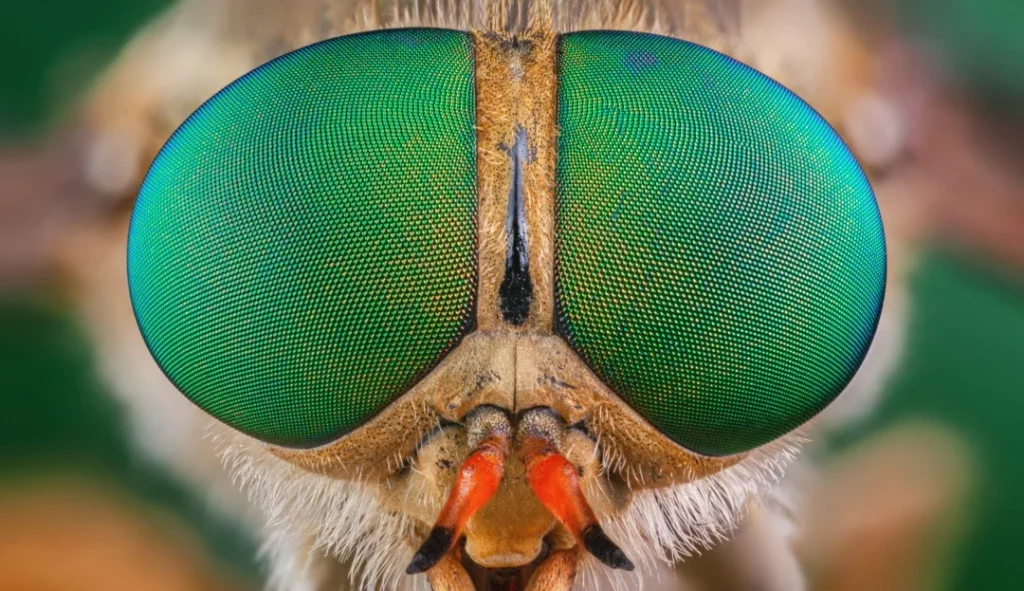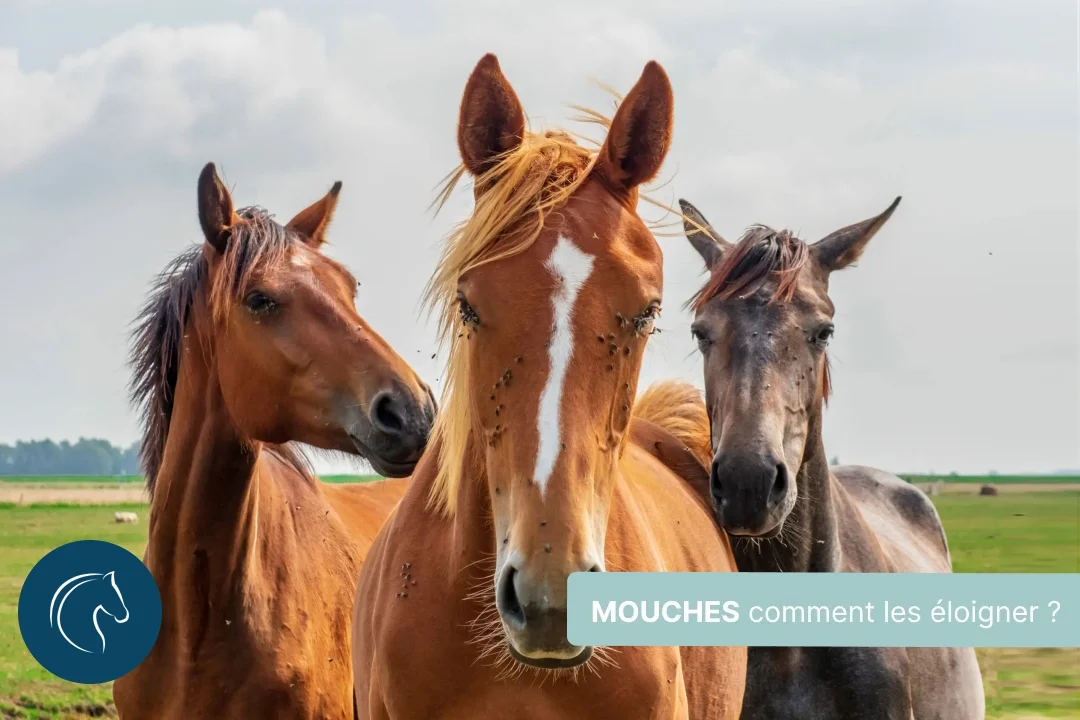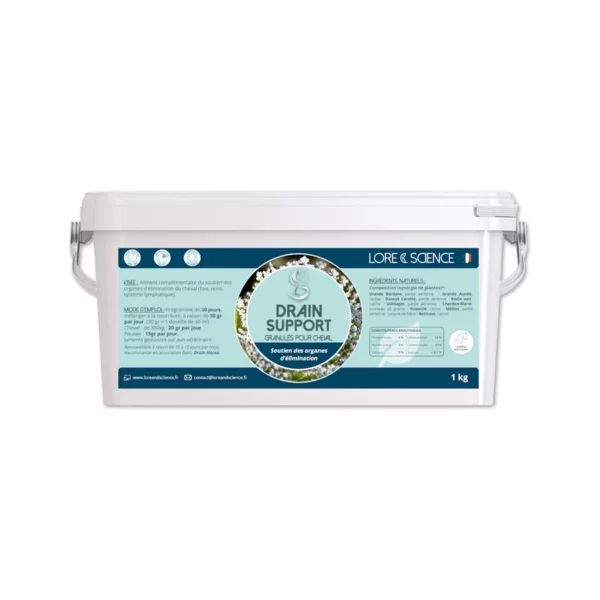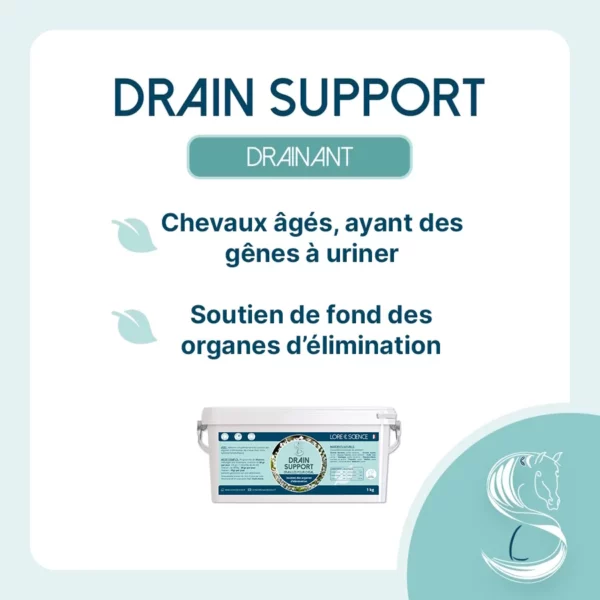As soon as spring begins, flies start to invade horses in the prairies making their daily lives difficult.
Flies, horse flies, mosquitoes and flying insects in general are naturally attracted to the dirt and sweat marks of horses. Flies are mainly attracted to wet areas and the horse's hair.
In order to preserve the well-being of the horse, it is essential to adopt the right practices. Lore & Science provides all the secrets to protect horses from flies.
Are flies dangerous for horses?
Flies, although seemingly harmless, can cause a lot of trouble for horses. Some horses are more sensitive than others to this phenomenon and may feel a very strong discomfort. Others may develop allergic symptoms.
This daily discomfort can drastically alter the horse's habits and the distribution of time spent on its activities. The length and timing of outings are modified to limit the presence of insects. Feeding, resting and moving are also affected.
This set of changes can become a source of stress and anxiety for the horse and lead to behavioral changes in the horse.
In addition to discomfort and annoyance, flies can cause conjunctivitis and internal injuries. Mosquito bites can transmit serious diseases such as West Nile fever.
However, there are solutions to limit the presence of flies in stables and paddocks. First of all, it is important to recognize the different types of flies that make life difficult for horses.

Types of flies in horses
1 Flat flies
The watchword of flat flies or spider flies is continuous harassment. They make life very difficult for horses between April and October with a peak of activity in summer. Unlike other insects where only the female bites, with flat flies the males also participate in the bites.
Their bites are particularly painful and cause sudden defensive reactions in horses. Anxiety may also occur.
It is important to know that flat flies are found in places that are often inaccessible to horses, mainly in the perineal area. These areas include the tail, udder, lower belly and inner thighs.
2Black flies
Black flies are a yearly plague for horses. These insects are usually reddish to black in color and measure between 2 and 6 millimeters. Because of their color and size, black flies are often mistaken for normal flies. This is why their danger is often underestimated.
As soon as spring arrives, they settle in the ears and the abdominal area. Their bites and more precisely the saliva of the fly, causes severe allergic reactions accompanied by strong itching. The latter are comparable to eczema with the appearance of crusts on the surface of the skin.
Black flies are vectors of transmission of summer dermatitis in horses. Indeed, many horses are allergic to their saliva.
It is a chronic skin disease characterized by skin lesions. The larger the wounds, the more black flies are present. It is therefore essential to treat the animal at the first sign of infection.
3Taons
The horsefly is easily recognizable by its larger size than the classic flies. The bites of the female horsefly are not only painful but also dangerous for the horse.
Indeed, the bites may cause the horse to panic by making it very agitated and cause abnormal behavior. Horseflies can transmit diseases such asanthrax or Lyme disease. Male horseflies are harmless because they feed on flower nectar.
Horses are most often bitten in the paddock. These insects are attracted by the perspiration the horse emits, but also by the movement, heat and carbon dioxide emitted by breathing. Working sessions with horses should therefore be avoided as much as possible in hot weather.
How to protect horses from flies?
Fly repellent spray
Fly repellent sprays are just one of the solutions available to keep flies away. The action of natural oils is a natural fly repellent.
Spray directly onto the horse, avoiding contact with the eyes. If the horse is frightened by the sound of the product during use, you can always apply it with a clean cloth or glove.
Anti-fly accessories
Another solution is to use appropriate protection. The anti-fly masks allow to fight against these insects which come on the eyes of the horses. There are different types of masks, with or without ear protection. It is also possible to opt for a muzzle protection or not.
Fly covers reduce horsefly and fly bites by protecting a large area of the horse's body. They also keep away the midges that appear in the evening.
Maintain the horse's living environment
It's essential tomaintain the horse'sliving environment to ensure impeccable hygiene.
There are many simple steps to take:
- Regularly clean and disinfect the stalls;
- Dispose of manure away from the barn;
- Create draughts in the stable. Flies can't stand them;
- Avoid going out and working in hot weather. It is preferable to go in the early morning or late evening. It is also possible to organize sessions in a covered riding arena in order to be cool;
- Favour group outings to ensure mutual aid. This will allow them to chase flies.
It is also advisable to watch for standing water near horses. This tends to attract more flies and mosquitoes.
Is your horse sick of flies? Share your opinion with us in the comments ↓














